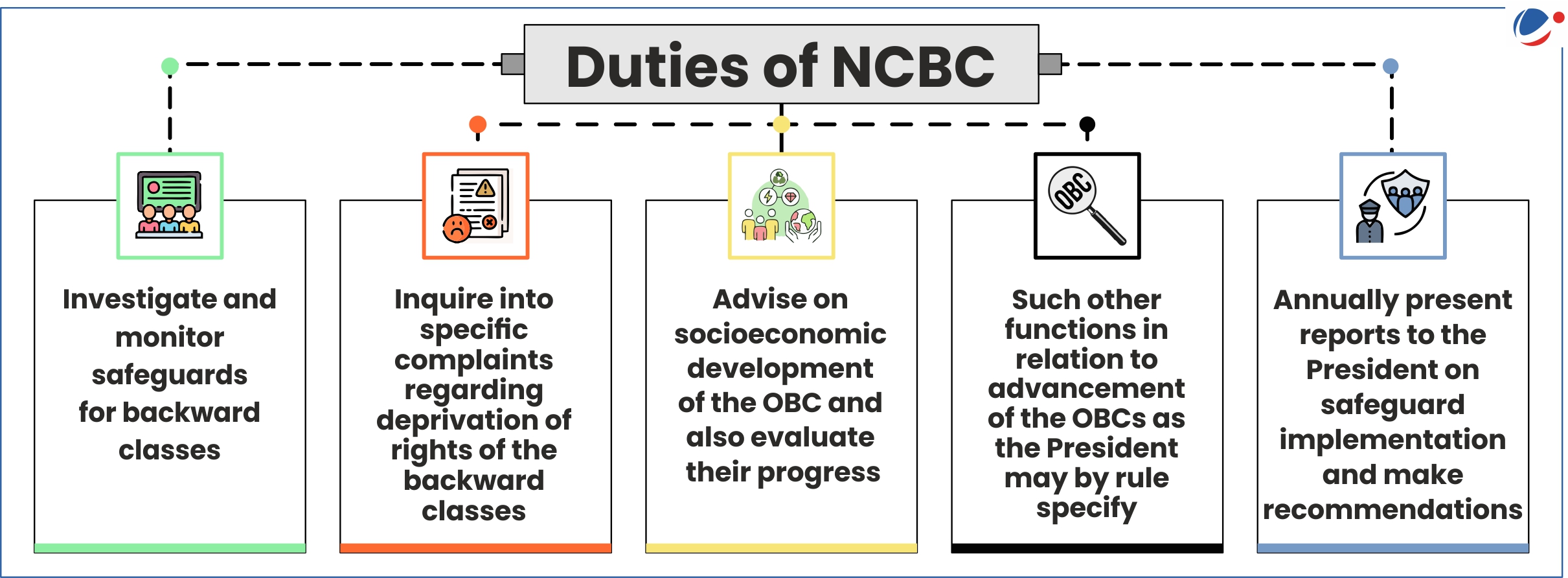Why in the News?
The National Commission for Backward Classes (NCBC) is reviewing the state list of Other Backward Classes (OBCs) using powers granted under the 102nd Constitutional Amendment Act.
More on the News
- NCBC has noted presence of ineligible communities in the OBC lists of States like Karnataka and West Bengal.
- It has also stalled request of West Bengal to include various castes/communities in the Central OBC list, and has asked current report justifying the backwardness of these communities.
- Moreover, NCBC is also planning to review OBC lists in Kerala, Odisha, Bihar, Maharashtra, and other states to ensure maximum OBC reservation within the 50% limit.
About OBCs and OBCs list
- Definition: There is no standard definition of OBC in the Indian Constitution. Socially and Educationally backward Classes (SEBCs) are commonly known as other backward classes (OBCs).
- OBCs list: Currently, for each state, there are two OBC lists one at the central level (for benefits by the Central Government initiatives) and another at the state level (for benefits by the State government initiatives).
- Central List: Article 342A (1) of the Constitution authorized the President (in consultation of the governor of the state) to specify the Central list of the OBCs, in relation to a particular State or Union Territory.
- Further, any modification to the central list of the OBCs can be done only by the Parliament.
- State List: Article 342A (3) empowers every State or UT to prepare and maintain for its own purposes, a list of SEBC entries which may be different from the Central List.
- Central List: Article 342A (1) of the Constitution authorized the President (in consultation of the governor of the state) to specify the Central list of the OBCs, in relation to a particular State or Union Territory.
- Reservations for OBCs: Articles 15 and 16 of the Constitution enable reservation for OBCs in admission to educational institutions, and in public employment.
- In 1990, the Centre implemented 27% reservation for OBCs in Central Educational Institutions and Central Government services as recommended by the Mandal Commission.
- Such reservation for OBC was upheld by the Supreme Court in Indra Sawhney Vs. Union of India 1992 subject to exclusion of the "Creamy Layer" (different groups based on income and parental rank).
Commissions constituted for the upliftment of OBCs
|
About NCBC
- Constitutional Body: NCBC was granted Constitutional Status under Article 338B (inserted through 102nd Constitutional Amendment Act, 2018).
- Article 338 B mandates Union and every State Government to consult the NCBC on all major policy matters affecting the rights of OBCs.
- Composition: Includes a Chairperson, Vice-Chairperson, and three other members appointed by the President. Their service conditions is also determined by the President.
- Power: The Commission has all the powers of a civil court.




